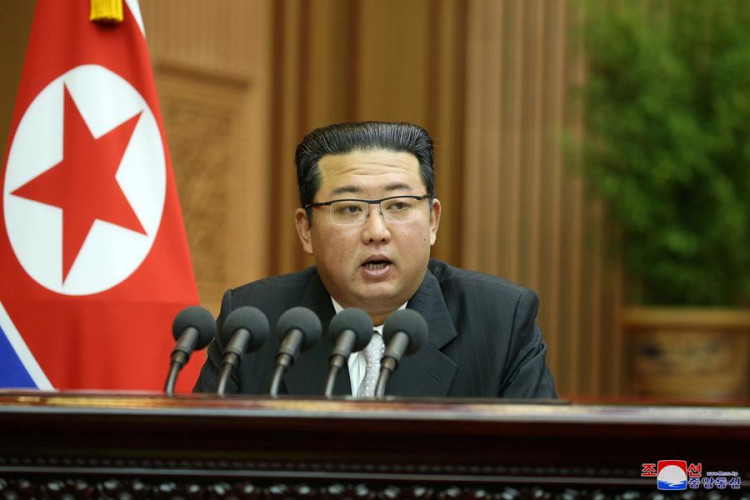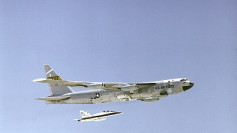North Korea on Thursday threatened unspecified retaliation following the U.S. military's deployment of two B-1B Lancer bombers for joint aerial drills with South Korean forces, an operation that Pyongyang denounced as an act of aggression and a "grave provocation."
The U.S. aircraft conducted the low-flying maneuver on Tuesday over western South Korea, accompanied by F-16 fighter jets and South Korean F-35A stealth aircraft, according to the U.S. Seventh Air Force. The mission marked the second bomber deployment to South Korea this year and was intended to reinforce deterrence capabilities amid North Korea's escalating weapons development.
"The recent military move of the U.S. and the ROK is an open threat to the security of our state and a grave provocation that raises the military tension in the region to an extreme dangerous level," a spokesperson for North Korea's Defense Ministry said in a statement carried by state-run media. The statement warned the country "will deter by dint of powerful force" what it called Washington's attempt to "fix the malignant instability element" in the regional security environment.
The B-1B Lancer, once part of America's nuclear triad until it was denuclearized in 2007, has the largest payload of conventional weapons in the U.S. Air Force and can carry up to 75,000 pounds of munitions. Its intercontinental range and ability to travel at Mach 1.2 make it a symbolically potent display of U.S. military strength in the region.
The South Korean Defense Ministry stated that the flyover demonstrated capabilities to respond to "advancing nuclear and missile threats" from North Korea. The joint drills are part of a broader pattern of increased defense coordination between the two allies.
Later on Thursday, South Korea's Air Force launched the biannual "Freedom Flag" aerial exercise, a two-week campaign involving 90 aircraft and other assets in conjunction with U.S. forces. The drills include both offensive and defensive tactics and are designed to improve interoperability under combat conditions.
North Korea often responds to similar drills by test-launching missiles, and analysts warn the regime could escalate provocations in response to the latest bomber presence. The North has recently expanded weapons testing and is reportedly supplying arms to Russia, further straining its relations with Western governments.
President Donald Trump, who has previously touted his relationship with North Korean leader Kim Jong Un, reiterated his willingness to engage. He and Kim “have a great relationship," Trump said in a March 31 interview. "There is communication." However, there have been no publicly confirmed negotiations or official responses from Pyongyang.






